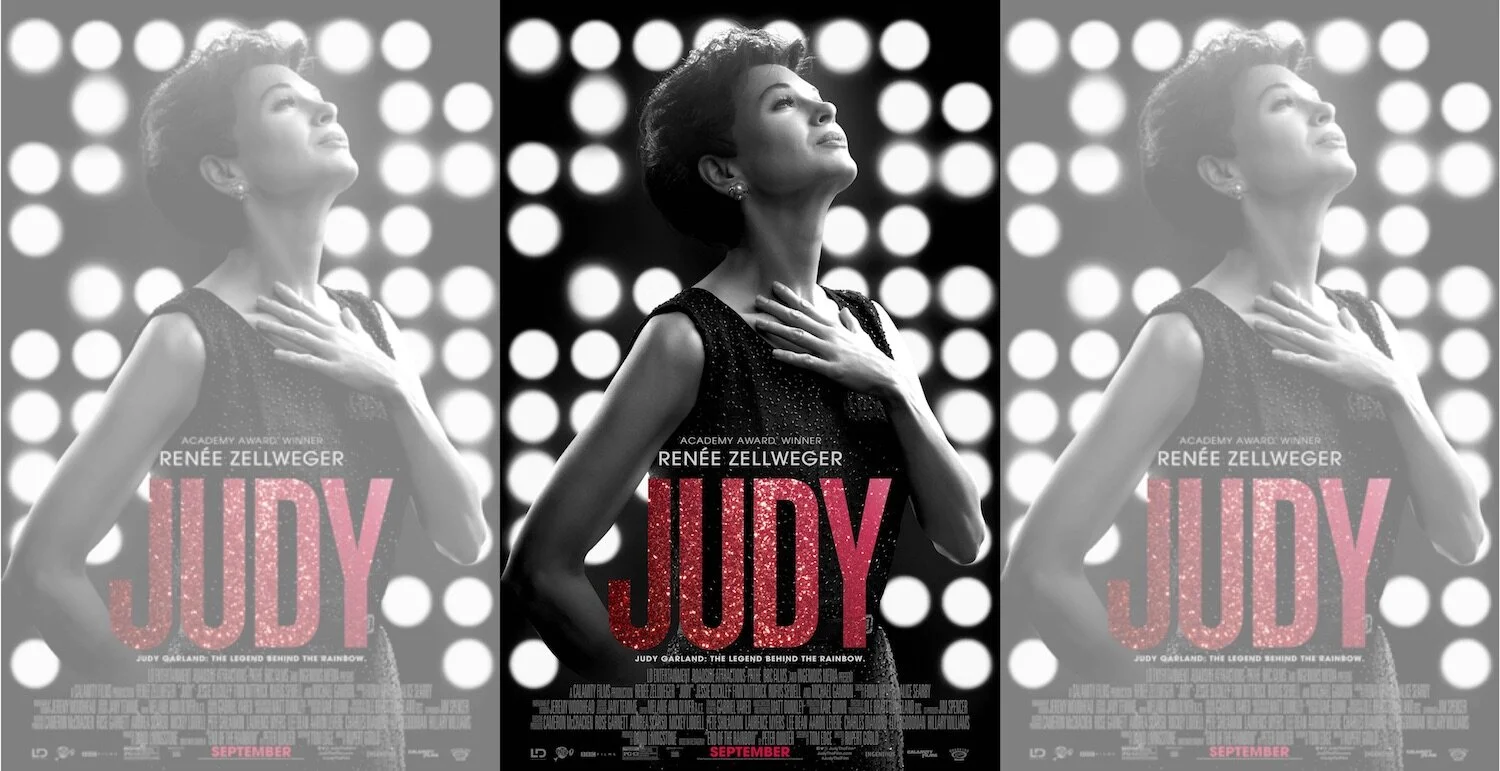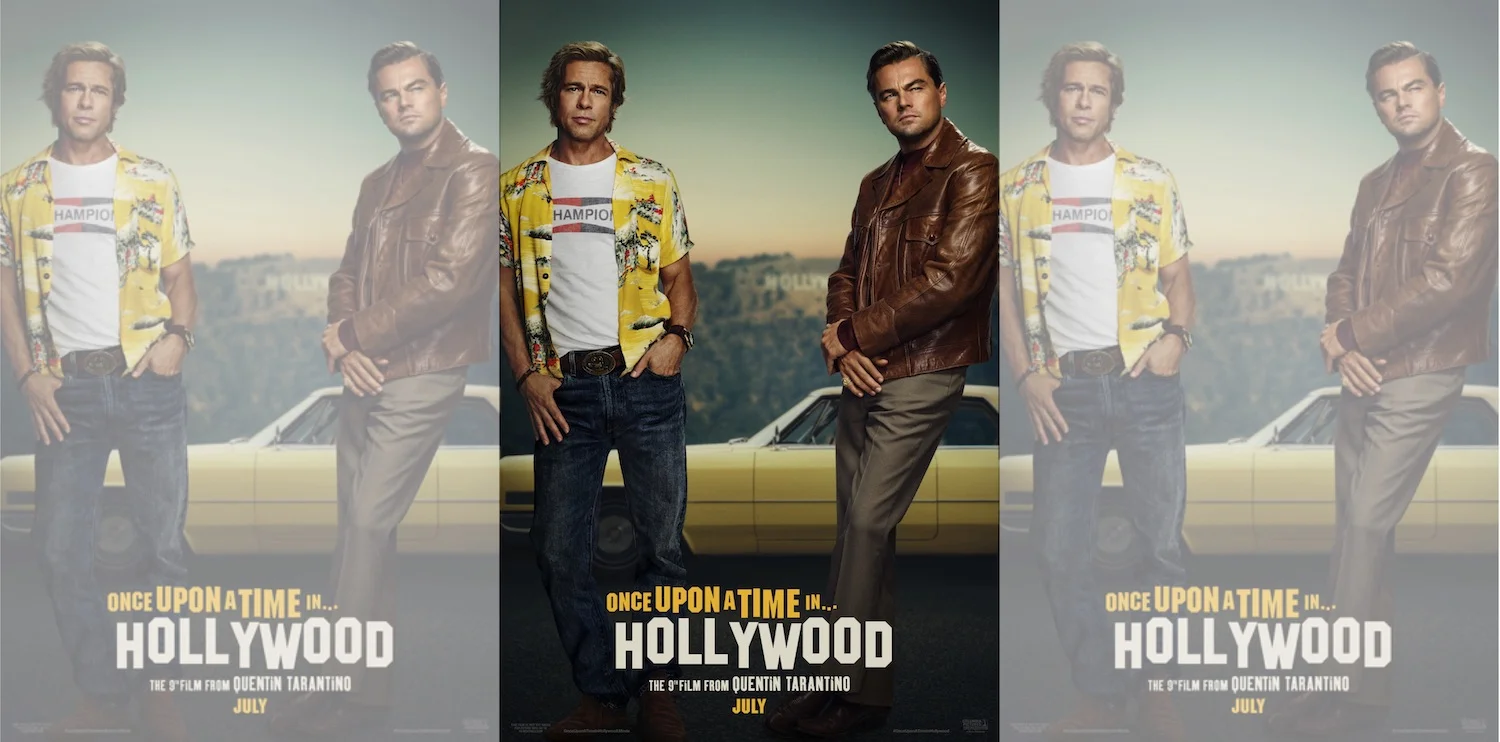Judy (2019)
SOMEWHERE UNDER THE RAINBOW
Jeanne Calvière (center, in white) in Georges Méliès’ short film, “Jeanne d’Arc”
From its earliest days, cinema has provided a ready framework on which to construct biographical stories of historic and consequential figures. In 1900, the French director Georges Méliès, who pioneered numerous storytelling and technical advances at the advent of filmmaking, produced a short, “Jeanne D'Arc,” about the venerated “Maid of Orléans.” More than a century later, Méliès himself would become a character in director Martin Scorsese’s Hugo.
The Academy of Motion Picture Arts and Sciences has a considerable track record of recognizing such films, as well the talent that populates them. More than a dozen recipients of the Oscar for Best Picture have hailed from the genre, including The Life of Emile Zola, Lawrence of Arabia, Patton, The Last Emperor, and 12 Years a Slave. Similarly, many Best Actor and Best Actress winners have been feted for portraying real-life individuals, such as Paul Muni for his role as the eponymous French scientist in The Story of Louis Pasteur; Anne Bancroft as Helen Keller’s teacher, Annie Sullivan, in The Miracle Worker; Meryl Streep as British prime minister Margaret Thatcher in The Iron Lady; and Daniel Day-Lewis as Abraham Lincoln in Lincoln.
Perhaps one reason that the Academy often rewards such performances stems from the increased degree of difficulty involved in bringing such roles successfully to life. Audiences frequently are not only aware of the subjects of such films, but also quite familiar with them. People everywhere, for example, know Freddie Mercury, the lead singer of the rock group Queen, which provided expectations of Rami Malek for those who would see Bohemian Rhapsody. In addition, actors have a responsibility to fidelity, to being true to the individuals they depict.
But meeting audience expectations and honestly representing an actual person are not enough to draw accolades. Consider Jim Carrey, who starred as Andy Kaufman in Man on the Moon. Mr. Carrey did an exceptional job recapitulating the late performance artist and actor, but he also failed to show a range of emotion that would have vaulted his performance into the upper echelons. It requires more than an impersonation, no matter how stellar, for an actor to craft a memorable turn in a biopic.
In Judy, lead actress Renée Zellweger has even heavier lifting to do as she steps into the shoes—into the ruby slippers—of legendary singer and actress Judy Garland. She must capture the physical essence of a woman known the world over, reproduce her stage presence, lend her a vulnerability and pathos befitting her difficult life, and on top of all that, she has to sing songs recorded by a vocalist considered one of the greatest of all time. Ms. Zellweger succeeds on all fronts, to such a degree that she subsequently won the Academy Award for Best Actress.
Renée Zellweger (center) as Judy Garland in Judy
The corporal transformation of Renée Zellweger into Judy Garland stands as an achievement in itself, and indeed, the film nets Jeremy Woodhead an Oscar nomination for his makeup and hair design. More than that, though, Ms. Zellweger manages a remarkable verisimilitude by way of her voice, mannerisms, and bodily movements. The way she belts out a song, the way she tilts her head, the way she casts or averts her gaze, the way she sometimes gathers her arms and legs into herself in a tangle of sadness and self-defense, all contribute to a vivid portrait of a gifted but wounded talent.
But Ms. Zellweger also finds the emotional core of the woman she plays. In Judy, Ms. Garland’s interior life is on full display, from her genuine love for her children, to both the confidence and insecurity she feels as a performer, to her continual but never fully satisfied longing for the right romantic partner. Beneath it all runs a lifelong and debilitating drug addiction that robs her of stability, happiness, and ultimately her life.
Based on End of the Rainbow, writer Peter Quilter’s musical stage play, Judy explores Ms. Garland through the prism of her final run of theatrical performances, a five-week stint at The Talk of the Town nightclub in London. Interspersed with this period, flashback scenes show sixteen-year-old Judy (Darci Shaw) on set during production of The Wizard of Oz, the film that would launch her to stardom. In this way, the audience can see the tragic downward trajectory of Ms. Garland’s life, beginning with the seeds of her destruction sown during her youth, first by her mother, Ethel Gumm (Natasha Powell), and then by the Hollywood honchos and apparatchiks she would meet on her rise to fame.
Ms. Shaw, bearing more of a resemblance to Deanna Durbin than to Judy Garland, nevertheless paints a picture of the young actress during a stressful and, unfortunately, formative period of her life. Even as they work the cast over extremely long hours and six-days weeks, the powers that be at the studio, Metro-Goldwyn-Mayer, do not support their actors. Concerned about Ms. Garland’s weight, they place her on a strict and clearly unhealthy diet, while also plying her with amphetamines to suppress her appetite and boost her energy. As a consequence of this drug use, they also provide her with barbiturates to allow her to sleep. The result would be Ms. Garland’s irradicable struggle with addiction, up until her death of an accidental overdose at the age of 47.
Richard Cordery and Darci Shaw in Judy
In the film, studio head Louis B. Mayer (Richard Cordery) and an MGM publicist (Lucy Russell) personify the coterie riding herd over the young actress, although Judy’s mother also works her daughter hard. The dialogue and tone in these scenes seem immoderate, with Mayer at first cloyingly sweet to Ms. Garland, and later, brutally cruel. The publicist likewise deals with Judy in an over-the-top manner, an authoritative taskmaster who doles out orders and pills easily and often. Still, despite their heightened, melodramatic nature, the scenes reveal the utter failures of the adults who should have safeguarded the young actress, effectively conveying the fountainhead of the tragedy Ms. Garland’s life would become.
From left to right: Lewin Lloyd, Bella Ramsey, and Renée Zellweger in Judy
Meanwhile, in what would be the last year of her life, Ms. Garland finds herself under tremendous fiscal pressures, the result of embezzlement and pecuniary mismanagement. After one stage show, she returns to the hotel where she resides with two of her three children, Lorna (Bella Ramsey) and Joey Luft (Lewin Lloyd), to discover that her room has been released because of her unpaid account, making her effectively homeless. With little choice, Ms. Garland leaves her children with their father, her combative ex-husband, Sid Luft (Rufus Sewell), then agrees to do the shows in London in an attempt to get back on her feet financially.
The bulk of the film takes place during Ms. Garland’s engagement at The Talk of the Town. Michael Gambon portrays Bernard Delfont, the theatrical manager of the venue. He does a fine job, as does Mr. Sewell as Ms. Garland’s former husband, but their talents are mostly wasted in their small, underdeveloped roles. The film’s primary players are Judy Garland’s fifth and final husband, Mickey Deans (Finn Wittrock), and the production assistant at the theater, Rosalyn Wilder (Jessie Buckley). Both perform admirably. Mr. Wittrock brings the feel of a shady used-car salesman to his character, a man who might believe in the moment the words he says, but who will never stand behind any promises he makes—precisely the wrong man for Ms. Garland, and at the wrong time. Ms. Buckley contributes an earnestness to her role that feels genuine.
Renée Zellweger and Finn Wittrock in Judy
Jessie Buckley in Judy
More than anything, though, the film belongs to Ms. Zellweger, and to the sorrowful life of Ms. Garland. Playwright Peter Quilter’s original musical evidently featured some fantastical elements, in much the way that Rocketman takes artistic license with the life of its subject, Elton John. Judy takes a straighter tack than its source material, but it borrows its most affecting and apparently apocryphal scenes from the stage play. In one sequence, Ms. Garland meets a gay couple (Andy Nyman and Daniel Cerqueira) waiting at the stage door after they attend one of her Talk of the Town performances, and she ends up asking them to join her for dinner. When they discover the local restaurants all closed because of the lateness of the hour, they end up at the couple’s apartment. What transpires is tremendously moving, with exceptional work by Mr. Nyman. Similarly, at the climax of the film, Ms. Garland breaks down on stage during her final London show, and what follows is both heartwarming and heartbreaking.
Daniel Cerqueira (left) and Andy Nyman in Judy
Overall, Judy is an informative, entertaining, and emotional biographical film. It treats Ms. Garland with sensitivity and honesty, despite the inclusion of events that did not actually take place. Still, those scenes evoke the essence of Judy Garland: of her incredible talent, of her unfulfilled need for love, of her losing battle with drugs and alcohol, of her relationship with her audiences. For some, sadly, it seems that there really is no place—no place at all—like home.
Renée Zellweger (left) as Judy Garland in Judy
***½ (out of *****)
©2020 David R. George III
2019 • 1 HOUR, 58 MINUTES
TWENTIETH CENTURY FOX • ROADSIDE ATTRACTIONS • BBC FILMS • CALAMITY FILMS • CONFIT PRODUCTIONS • PATHE UK
STARRING
• RENEE ZELLWEGER
ALSO STARRING
• JESSIE BUCKLEY, FINN WITTROCK, RUFUS SEWELL, MICHAEL GAMBON, RICHARD CORDERY, ROYCE PIERRESON, DARCI SHAW, ANDY NYMAN, DANIEL CERQUEIRA
WRITTEN BY
• TOM EDGE (SCREENPLAY BY)
• PETER QUILTER (BASED ON THE STAGE PLAY “END OF THE RAINBOW” BY)
DIRECTED BY
• RUPERT GOOLD
2019 ACADEMY AWARDS (1)
• BEST ACTRESS: RENEE ZELLWEGER
ADDITIONAL 2019 ACADEMY AWARDS NOMINATIONS (1)
• BEST MAKEUP AND HAIRSTYLING (LOST TO BOMBSHELL)








